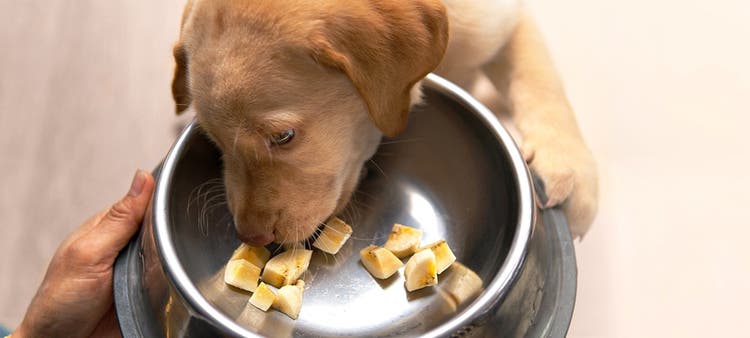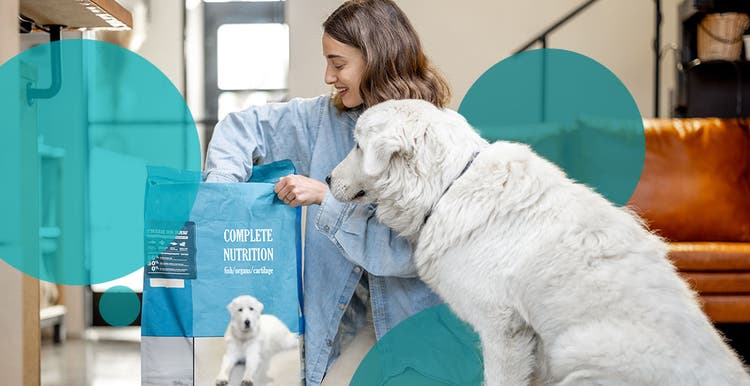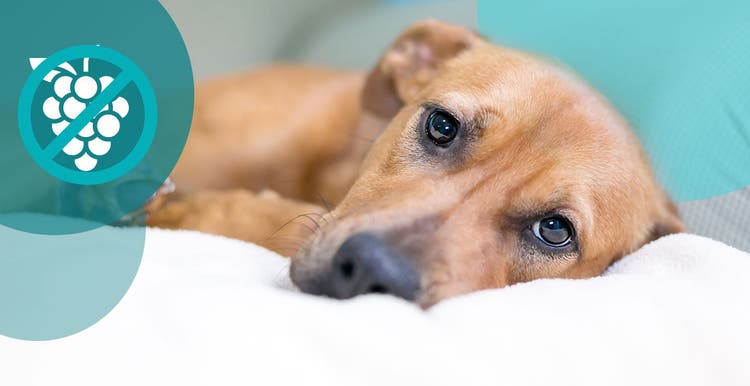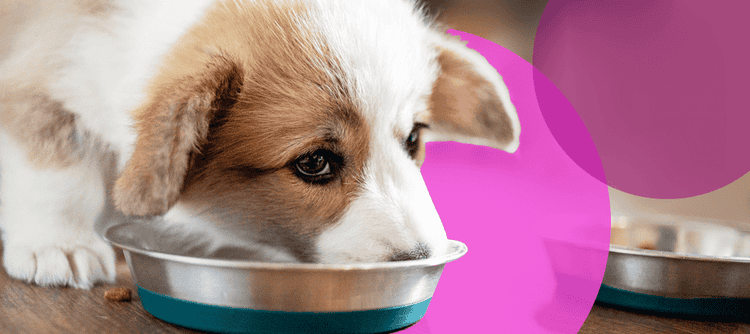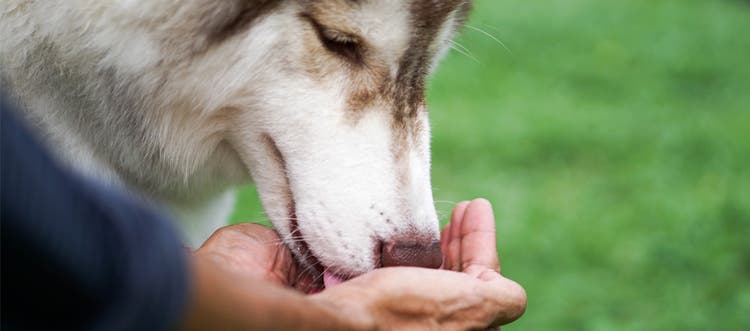Find out if pumpkin is a safe treat to give your dog.
While there are many human foods that could make your dog sick, some foods can be beneficial for your dog’s health. Pumpkin can be a tasty ingredient to add to your dog’s diet; however, there are many misconceptions about the true benefits of pumpkins for dogs.
Can Pumpkin Be Beneficial for Dogs?
Pumpkin contains fiber, vitamins and minerals such as vitamins A, E and C, potassium and iron. The soluble fiber in pumpkin absorbs water in your dog’s stool and acts as a prebiotic. Prebiotics are a type of fiber that helps the good bacteria in the gastrointestinal (GI) system flourish — not to be confused with probiotics, which are live bacteria that support GI health.
Common Misconceptions about the Fiber Content in Pumpkin
Canned pumpkin contains surprisingly little fiber when compared to commercial wet and dry dog foods. For example, for a medium-sized dog, you would need to feed up to 12 cups a day to match the amount of fiber in good-quality pet food formulated with added fiber. Because of this, the best source of fiber for your dog is through a commercial pet food or veterinary therapeutic diet formulated to provide essential nutrients, including fiber.
Here’s the typical nutritional breakdown for 100 grams of canned pumpkin:
- About 3% fiber
- About 3% sugar
- About 85% water
- About 1% protein
- Negligible amounts of fat
While pumpkin can be added to a dog’s diet, not all types of pumpkin should be fed to pets. Here are some considerations to think about when supplementing your dog’s diet
Can Dogs Eat Raw Pumpkin?
Avoid giving your dog raw pumpkin, as the raw seeds, shell, stem, leaves and innards can irritate your dog’s stomach.
A better option is pure canned pumpkin; look for unsalted canned pumpkin, as too much sodium can be bad for pets, especially if they have kidney or heart issues. Pumpkin should make up 10% or less of your dog’s caloric intake. Additionally, too much fiber at once isn’t good for your dog, so you may want to start with less than the recommended amount.
You can also make pumpkin biscuits as a tasty treat, but it can be more effective if you mix the pure pumpkin into your dog’s food.
Can Dogs Eat Pumpkin Seeds?
Raw, unseasoned pumpkin seeds are safe for your dog, but only if you remove them from the shells and grind them up before feeding.
Can Dogs Eat Pumpkin Pie?
No. Pumpkin pie is filled with sugar and spices, so you should only feed your dog pure pumpkin or unseasoned seeds. Pumpkin pie may also contain the potentially toxic sugar substitute xylitol, which can cause weakness, lethargy, collapse, seizures, vomiting and diarrhea in dogs, among other symptoms. If your dog has consumed pumpkin pie, contact your vet as soon as possible.
Can Pumpkin Help with Diarrhea?
Yes; diarrhea is a common issue that pumpkin may be able to help with. If you believe your dog has an upset stomach from a change in diet or stress, pumpkin can be a helpful supplement to their regular meal. Parasites can also cause an upset stomach, and your vet may recommend pumpkin as a supplement after your dog is diagnosed.
Note: If your puppy or senior dog has diarrhea, or the diarrhea is constant or bloody, take them to the vet immediately to rule out a potential health concern.
Can Pumpkin Help with Constipation?
Canned pumpkin can help if your dog seems constipated or is having a hard time defecating. Dogs generally do not suffer from constipation, but they may show difficulty pooping if they’re in pain or dehydrated. Canned pumpkin, which is mostly water, can be used to help soften the stool by helping to hydrate the stool and GI tract to help move things along. Speak with your veterinarian if you notice your pet struggling to defecate or having very hard stools. As with diarrhea, it’s important to take your dog to the vet to find out the root cause.
While canned pumpkin may help address some of your dog’s digestive issues, it’s better to think of this food as an occasional tasty treat than as an effective long-term fiber supplement. Consult your vet if you’re concerned about your dog’s dietary needs or any GI issues you may have observed, and give your dog pumpkin like you would any other treat — sparingly.
